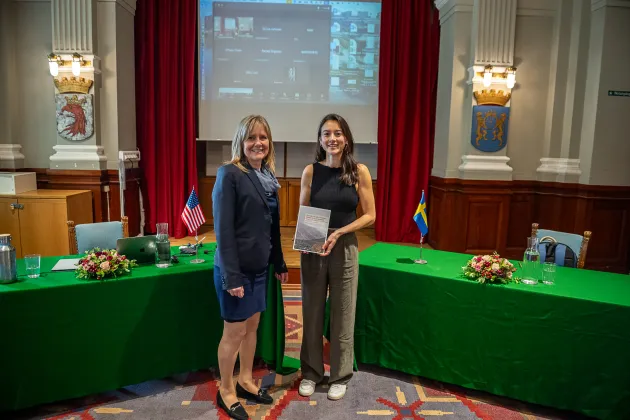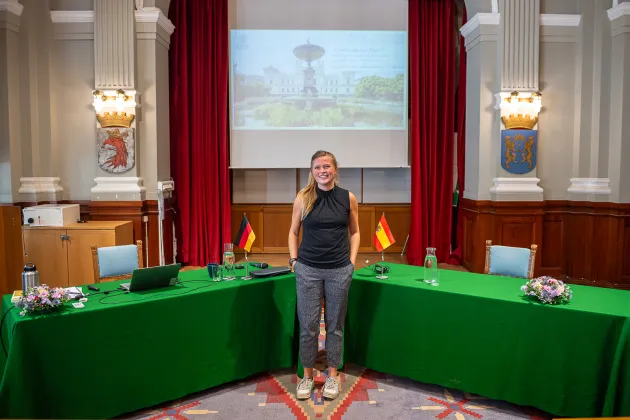The faculty opponent was Professor Anna Öhrwall Rönnbäck from Luleå University of Technology. Members of the Examination Committee were Professor Fenna Blomsma from Hamburg University, Professor Hervé Corvellec from Lund University, and Doctor Steven Sarasini from RISE. Deputy member was Professor Caroline Wigren-Kristoferson from Malmö University.
Title
Towards Circular Business Models for Sustainability: Exploring Innovation, Implementation, & Environmental Impact.
Abstract
Businesses play a key role in transforming production and consumption for sustainability, where circular business models (CBMs) offer one solution to reduce waste and rethink resource use. Although CBMs may be able to provide environmental and economic benefits, it is unclear how they can be implemented effectively and contribute to sustainability goals. To understand how CBMs can contribute to broader sustainability transformation, this thesis explores the implementation processes and environmental impacts of CBMs. The research was conducted utilizing an inter- and transdisciplinary approach, consisting primarily of qualitative analysis of in-depth case studies, followed by a systematic literature review, and including the quantitative method of life-cycle assessment.
The findings highlight a range of capabilities that are needed for the implementation of CBMs from operational capabilities such as digitalization and service integration to strategic capabilities like managing organizational ambidexterity and cultivating mindset shifts. A key contribution of the dissertation is showing that these capabilities are enabled and developed through dynamic collaboration processes–– both internally through cross-functional teams and externally through strategic partnerships that facilitate resource sharing, joint experimentation and learning. The research also contributes novel empirical insight into the environmental impacts of
CBMs, demonstrating that such impacts are highly context-dependent and influenced by business model design and consumer behavior. Through original and aggregated life cycle assessments, the dissertation highlights critical impact factors such as substitution rates, infrastructure, and transport, and discusses environmental trade-offs.
The varied environmental outcomes of CBMs can also be attributed to their primary reliance on efficiency strategies to reduce waste without questioning overproduction and consumption. The dissertation extends the conceptual framing of CBMs by integrating sufficiency perspectives, advocating for production-oriented strategies that target absolute reductions in resource use such as made-to-order production and limited marketing. It also emphasizes the need to critically examine how organizational structures influence strategic decisions that often encourage continuous growth without question. By analyzing both implementation processes and environmental impacts, the dissertation offers a comprehensive understanding of how business models can more effectively support a circular economy that contributes to transformative sustainability in production and consumption.
Read the thesis here.





